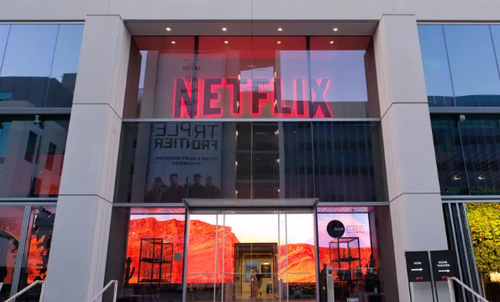At this point, it's probably fair to say that Netflix's ad supported tier is becoming a success. The company's newest plan now has 15 million global customers just one year after its launch, according to a new report from Bloomberg.
According to the report, the streaming platform also recently unveiled enhancements for its $7 monthly plan in the US, priced significantly below its regular package.
Users can now download movies and TV episodes, enjoy dual streams at an improved quality, and, after watching three episodes consecutively, a fourth episode can be viewed ad-free. Additionally, QR codes will be launched to engage viewers during commercials, the report says.
As Bloomberg notes, the introduction of the ad tier aimed to lure more subscribers following a decline in registrations last year. Initially, advertisers were hesitant, doubting the viewership for their ads. However, in the latest quarter, Netflix surpassed projections, adding close to 9 million new users.
Recall, last month, the company beat Wall Street expectations for profit and user growth during the third quarter. Its stock has been in a tear upward ever since, once again eclipsing the $400 mark and heading toward its 52 week high of $485.
For Q3, Netflix generated $8.54 billion in revenue and an earnings per share of $3.73. These figures surpassed analyst expectations, which predicted $8.54 billion in revenue and $3.49 per share, as per FactSet.
Additionally, with nine million new paid subscribers, Netflix outdid the anticipated 6.08 million, elevating its worldwide paid subscriber count to 247.2 million, according to Forbes last month.
Recall, over a tumultuous three-year period, Netflix investors witnessed the company's share price soar, doubling in value during the early pandemic days due to stay-at-home mandates that boosted streaming.
However, the stock plummeted nearly 75% in the first half of 2022 when the company disclosed its first quarterly subscriber declines in ten years.
The stock later rebounded with the resurgence of subscriber growth, driven by Netflix's measures against password sharing and the introduction of a more affordable ad-supported tier.
The stock saw a brief surge during the Hollywood actors and writers' strike in the summer, as analysts believed Netflix's content reservoir would give it an edge over competitors, but this optimism was short-lived.
Analyst expectations for the company were starting to be tempered heading into the Q3 report, with Bernstein analysts Laurent Yoon and Mark Shmulik writing: “Netflix now closely resembles a utility in many markets, giving it status as a long, durable service. The challenge of being labeled a utility, of course, is how a maturing company continues finding growth.”
But it looks like Netflix keeps finding a way...

